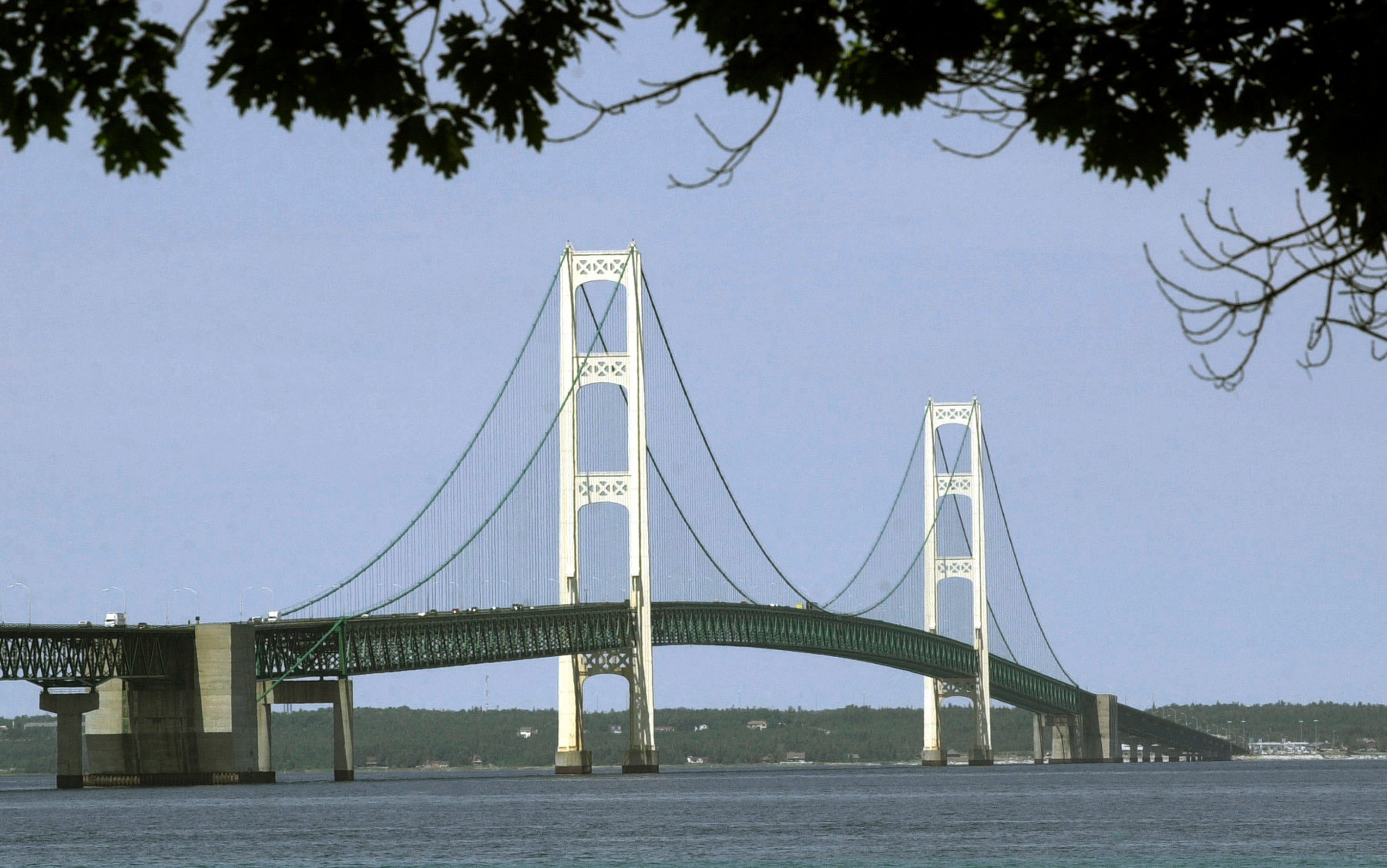Michigan regulators approve $500M pipeline tunnel project under channel linking 2 Great Lakes
Michigan regulators have approved a $500 million plan to encase in a protective tunnel a portion of an oil pipeline that runs beneath a channel connecting two Great Lakes

Your support helps us to tell the story
This election is still a dead heat, according to most polls. In a fight with such wafer-thin margins, we need reporters on the ground talking to the people Trump and Harris are courting. Your support allows us to keep sending journalists to the story.
The Independent is trusted by 27 million Americans from across the entire political spectrum every month. Unlike many other quality news outlets, we choose not to lock you out of our reporting and analysis with paywalls. But quality journalism must still be paid for.
Help us keep bring these critical stories to light. Your support makes all the difference.
Michigan officials approved a $500 million plan Friday to encase in a protective tunnel a portion of an oil pipeline that runs beneath a channel connecting two Great Lakes, leaving just one more regulatory hurdle for the contentious project.
The state's three-person Public Service Commission approved the project in the Straits of Mackinac on a 2-0 vote. Commissioner Alessandra Carreon abstained, noting she just joined the commission four months ago.
The commission's chairperson, Dan Scripps, said that an oil spill in the straits, which link Lake Michigan to Lake Huron, would be catastrophic. The tunnel is the best way to mitigate the risk as the state transitions to renewable energy sources, he said.
The plan still needs approval from the U.S. Army Corps of Engineers, which is still compiling an environmental impact statement. A final decision may not come until 2026.
Enbridge Energy has been operating the Line 5 pipeline since 1953. The pipeline moves up to 23 million gallons (87 million liters) of crude oil and natural gas liquids daily between Superior, Wisconsin, and Sarnia, Ohio.
A 4-mile (6-kilometer) portion of the pipeline crosses the bottom of the Straits of Mackinac. After an Enbridge pipeline leaked about 21,000 gallons (79,500 liters) of crude oil into a Kalamazoo River tributary in southern Michigan in 2010, the state formed a task force to review petroleum pipelines across the state, including Line 5.
Enbridge officials revealed in 2017 that engineers had known about gaps in Line 5's protective coating in the straits since 2014. That section of pipeline was also damaged by a boat anchor in 2018, raising concerns about a spill. Later that year, then-Republican Gov. Rick Snyder's administration reached an agreement with Enbridge calling for the company to build a tunnel 60 to 375 feet (18 to 114 meters) beneath the lakebed to house a new section of Line 5 and shut down the existing segment at a cost of $500 million.
Current Gov. Gretchen Whitmer, a Democrat, has said she opposes the continued operation of Line 5 under the straits — even with the new tunnel — agreeing with Indigenous tribes, environmentalists and tourist businesses that it is at risk of causing a devastating spill.
She ordered Enbridge in November 2020 to close the 68-year-old line, revoking a 1953 state easement allowing its placement in the straits. Enbridge, based in Calgary, Alberta, contends the line is safe and ignored the governor’s shutdown deadline.
Democratic Attorney General Dana Nessel filed a state lawsuit in 2019 to void Enbridge's easement in the Straits. A federal appellate court is reviewing whether the lawsuit belongs in state or federal court.
The state Department of Environment, Great Lakes and Energy in 2021 approved construction of the tunnel. Liesl Clark, who was the director of the Michigan agency at the time and a Whitmer appointee, said the company’s application satisfied state legal requirements.
A federal judge in Madison, Wisconsin, this summer gave Enbridge three years to shut down part of Line 5 that runs across the reservation of the Bad River Band of Lake Superior Chippewa.
The tribe sued Enbridge in 2019 to force the company to remove about 12 miles (19 kilometers) of pipeline crossing its reservation, saying the pipeline is prone to spills and land agreements allowing it to operate on reservation land expired in 2013.
The company has proposed a 41-mile (66-kilometer) reroute of the pipeline to end its dispute with the tribe. It has appealed the shutdown order to the 7th U.S. Circuit Court of Appeals; the case is still pending.
Subscribe to Independent Premium to bookmark this article
Want to bookmark your favourite articles and stories to read or reference later? Start your Independent Premium subscription today.